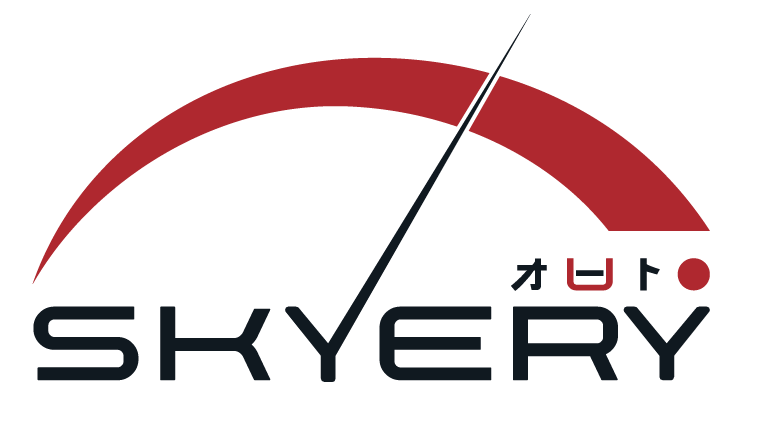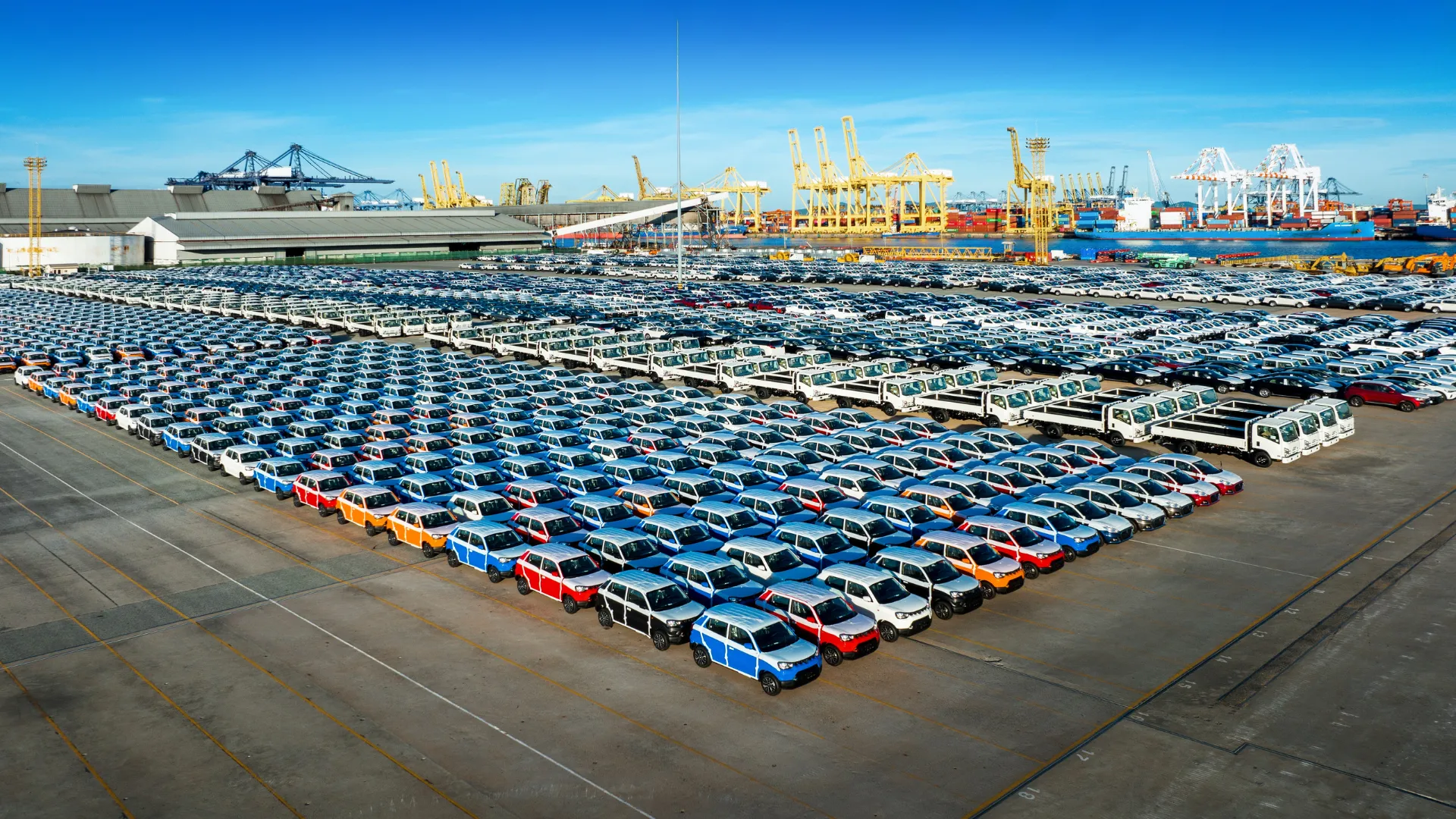The Real Cost Breakdown of Importing a Car from Japan
Buying a sleek coupé under the humming lights at USS Tokyo feels thrilling, yet the auction hammer marks only the first slice of a far wider bill. Many shoppers tally the winning bid alone, then feel surprise when the invoice features rows of fresh figures. Skyery Auto believes clarity breeds confidence, so the team assembled a line-by-line map of every expense between a Japanese auction lane and a UAE registration plate. Let’s track the yen, the dollars, and the dirhams from start to finish.
1. Auction Hammer Price
The hammer price represents the core value of the vehicle. Japan’s auction network lists the figure in yen. Skyery Auto’s Tokyo desk converts the amount to US dollars on auction day, then fixes that value with the buyer before further steps. Securing an exact conversion rate locks your budget from currency swings later in the chain.
2. Auction House Buyer Fee
USS and sister venues collect a buyer’s fee for every successful bid. The figure shifts by auction group and hammer band, yet averages between ¥10,000 and ¥30,000. Skyery Auto passes that fee at cost without a surcharge. Conversion to dollars joins the hammer price on the same invoice line for neat bookkeeping.

3. Recycling and Registration Cancellation
Japan charges a mandatory recycling levy when the vehicle leaves its domestic fleet. Paperwork includes deregistration, number plate surrender, and environmental duty. Expect roughly ¥12,000 to ¥20,000 for standard passenger cars. Skyery Auto settles the amount upfront, recovering it later from tax authorities, so clients see the raw figure only as a reference.
4. Inland Transport Inside Japan
A freshly won car rarely sits beside a port. A carrier must haul it from the auction yard to an export compound near Yokohama, Nagoya, or Kobe. Distance drives the bill. Short hops near the coast can run as low as ¥9,000. A journey from Hokkaido, involving a ferry link, can top ¥80,000. Skyery Auto alerts bidders in advance when a distant auction appears, allowing a smarter maximum bid.

5. Yard Handling and Storage
Once the carrier unloads, a secure export yard completes washing, radiation scan, and customs gate checks. Basic yard entry and handling sit near ¥8,000. Storage during the first four weeks often remains free; further days incur roughly ¥500 per calendar day. Rapid paperwork keeps storage minimal, yet buyers planning a multi-car container may need to bank extra days to group shipments and trim freight.
6. Marine Insurance
Protection on the open sea matters when the ocean swell tilts a roll-on roll-off deck. Skyery Auto arranges marine cover equal to the declared invoice value plus freight. Premium sits near 0.8 percent of the insured sum. A $20,000 sedan ships under an insurance premium of roughly $160, granting comfort against rough weather or crane mishaps.
7. Ocean Freight: RORO vs Container
- Roll-On Roll-Off (RORO) – The most common route for standard cars. Current lanes from Yokohama to Jebel Ali are quoted in the $900–$1,100 band.
- Shared Container – Ideal for classic or luxury units requiring full enclosure. A 40-foot box splits among two to three cars, landing near $1,400 per slot.
- Dedicated Container – Exclusive use suits very high-value inventory. Expect an upward of $3,600, yet many collectors absorb the premium for extra paint safety.
Skyery Auto advises on vessel schedules and then books freight using the buyer’s chosen mode.

8. Destination Port Charges in the UAE
Upon arrival at Jebel Ali, the port authority levies handling, crane, and documentation fees. Current rates float near AED 850 for RORO arrivals and AED 1,100 per container slot. A port service agent collects the amount before release. Skyery Auto includes an advanced estimate in the first budget outline, so no line item sneaks up later.
9. Customs Duty and VAT
The UAE applies a five percent customs duty on the CIF total (car value plus freight plus insurance). VAT runs at five percent on the aggregate CIF plus duty plus port service fee. For a quick illustration, imagine a Nissan Skyline at $18,000, with $950 freight and $160 insurance:
- CIF converted: $19,110
- Duty: $955
- VAT base: $20,065
- VAT: $1,003
Total tax package: $1,958. Skyery Auto marks these public rates clearly in the pro-forma so buyers enter the deal fully informed.

10. Clearance Agent and Registration
A licensed customs broker guides the car through the port exit, road-worthiness test, and registration at the RTA. Service bundles range between AED 1,500 and AED 2,500, depending on plate type and vehicle class. The fee covers clearance manifest, inspection escort, insurance liaison, and plate fitment. Skyery Auto maintains a roster of trusted agents, and buyers pick their preferred partner.
11. Optional Add-On Services
- Pre-Shipment Third-Party Inspection – A mechanical report from JEVIC or JAAI, priced near ¥40,000, adds peace of mind for high-performance models.
- Odometer Verification Certificate – An extra ¥15,000 secures mileage integrity.
- Underseal Treatment – Coastal climates corrode underbodies. A ¥18,000 wax coating protects during marine transit.
- Tuning Parts or Wheel Sets Inside a Container – Extra cargo slots inside a shared container allow coilovers or forged rims to ride along for roughly ¥8,000 per item, far cheaper than separate freight later.
Skyery Auto lists each option on a menu, and buyers select à la carte.
12. Currency Management
Yen-dirham volatility can shift total spend. Skyery Auto locks the hammer conversion on auction day, yet freight and duty quotes are in dollars and dirhams. A buyer who tracks forex trends can pre-fund a dollar account before bid day to guard margins. The company’s accounts team provides rate alerts on request.

13. Time: The Silent Expense
Days hold value. A car that clears port in a week lands on a showroom floor quicker, generating revenue. A private buyer gains earlier weekend drives. Skyery Auto’s in-house workflow trims hold between steps: auction purchase confirmation, carrier booking,
yard documentation, and vessel loading. Speed saves hidden cash by avoiding storage, currency drift, and opportunity loss.
Final Budget Snapshot
Compile the sections for a mid-range sport hatch:
| Cost Item | Yen | Dollar | Dirham (approx.) |
| Hammer Price | ¥900,000 | $6,700 | AED 24,600 |
| Buyer Fee | ¥15,000 | $110 | AED 410 |
| Recycling + Cancellation | ¥15,000 | $110 | AED 410 |
| Inland Haulage (Nagoya to Yokohama) | ¥32,000 | $240 | AED 880 |
| Yard Handling | ¥8,000 | $60 | AED 220 |
| Freight (RORO) | — | $950 | AED 3,490 |
| Marine Insurance | — | $60 | AED 220 |
| Port Handling UAE | — | $230 | AED 850 |
| Customs Duty | — | $405 | AED 1,490 |
| VAT | — | $425 | AED 1,560 |
| Clearance Agent + Registration | — | $550 | AED 2,020 |
| Total | $9,640 | AED 36,150 |
Exchange assumption: ¥135 = $1, $1 = AED 3.67. Figures shift by engine size, year, and shipping lane, yet the table paints a real-world canvas for planning.
Skyery Auto strips the curtain from car import math, tracing each yen and dirham until the number plate bolts on. From the auction’s electric buzz to the first UAE fuel stop, every phase carries precise figures at Skyery Auto. Buyers gain control, planners gain precision, and dream machines roll off vessels without budget drama. The journey feels bold, yet the numbers remain tame when each step stays transparent, timed, and aligned.




